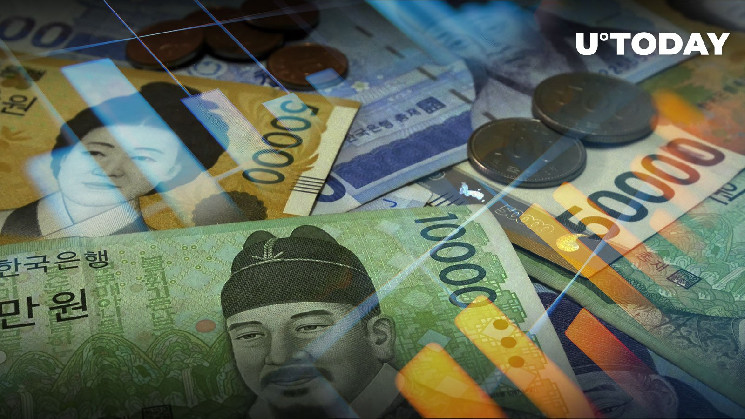According to a recent report by Bloomberg, the South Korean won has emerged as the new darling of cryptocurrency traders, surpassing the U.S. dollar.
In the first quarter of 2024, the Korean won managed to generate $11 billion more in volume compared to the greenback.
The growing popularity of altcoins in South Korea is one of the key reasons behind this phenomenon. Smaller tokens account for the vast majority of the aforementioned volume.
Moreover, there is growing competition among local cryptocurrency exchanges. Bithumb and smaller exchanges are trying to eat away at the market share of Upbit, the current crypto leader on the South Korean market.
Attracting crypto-friendly voters
South Korea has long been one of the key cryptocurrency hubs around the world. The leading political figures have, of course, taken note of the increasing popularity of digital assets ahead of the upcoming parliamentary election. The competing parties are trying to woo crypto-friendly voters with all sorts of incentives: from delaying taxes to promising local crypto enthusiasts access to the red-hot spot Bitcoin exchange-traded funds from the U.S.
Last March, cryptocurrency trading volumes managed to surpass the entire South Korean stock market in trading volume.
Tougher listing rules
Amid this frenzy, South Korean regulators are working to crack down on dubious tokens. The listing of previous compromised tokens will be prohibited by authorities, according to recent reports from local media. Various domestic crypto projects, such as Galaxy (GXA) and Orbit Chain (ORC), recently fell victim to hacking. Moreover, foreign tokens issuers are supposed to publish their whiter paper specifically for the Korean market in order to appear on local exchanges. Those who violate theee rules might end up facing significant fines or even jail time.
 u.today
u.today
